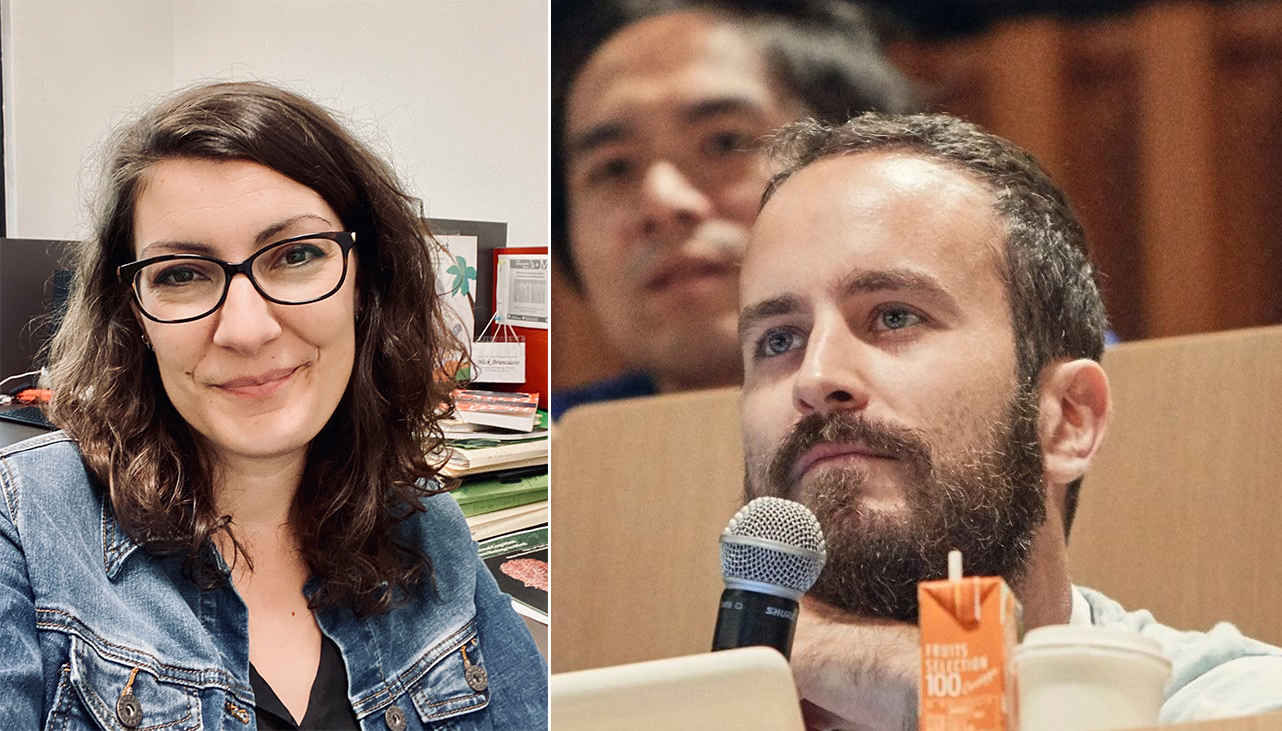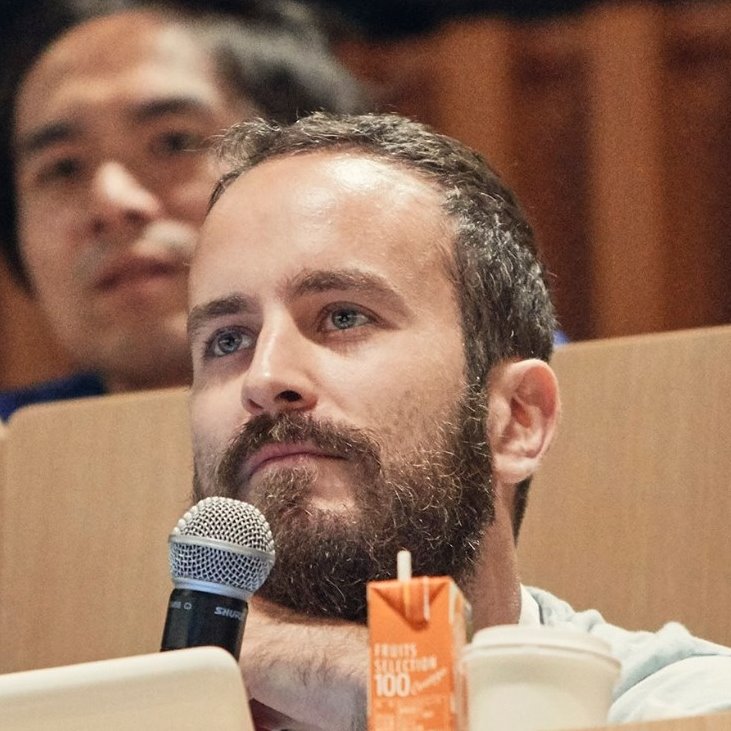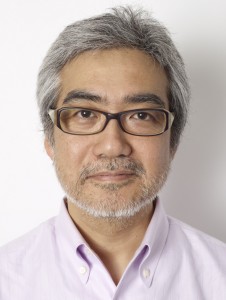Events
イベント
2022 CHAIN Winter School
2022年度 CHAINウィンタースクール:「Minimal Cognition and Agency」

CHAINでは「意識・自己・社会性・合理性」といったテーマに対して哲学・神経科学・AI研究の融合した学際的教育プログラムを北大の大学院生に向けて提供しています。その中で夏と冬に開催されるサマースクール・ウインタースクールでは外部講師をお招きし、受講生に最先端の知見に触れ、学際的議論を行う場を提供しています。
2022年度のウィンタースクールはテーマを「Minimal Cognition and Agency」と題して、以下の先生方をお呼びして、講義・議論を行います。(敬称略)
- 特別講演: 中垣 俊之 (北海道大学 電子科学研究所 附属社会創造数学研究センター 教授)
- 講義1, 2, 4: Nick Brancazio (University of Wollongong)
- 講義1, 3, 5: Manuel Baltieri (株式会社アラヤ)
Seminar1

Lecturer
Lecture 1 - Defining Agency
Abstract:
In this introductory lecture, we’ll start by looking at definitions of agency across a number of research programs. Human-centric notions have traditionally been held as the standard of agency in studies of cognition and behaviour. However, the growing interest in diverse intelligences has brought attention to definitions of agency coming from the life sciences, the cognitive sciences and philosophy of mind. After looking at some examples of agency in these areas, in the first part of this lecture we’ll consider the connections between the use of agency in these various fields. We’ll consider whether agency is a uniquely biological phenomenon, and whether having one definition of agency is useful or an obstacle for research across multiple scales. In the second part of the lecture we’ll look on the other hand at how agents are treated in physics, computer science, and robotics. In different branches of the physical sciences, it is often assumed that a complete explanation of natural and cognitive phenomena can be achieved from purely reductionist, mechanistic approaches that already explain the physics of the universe we live in. Perhaps surprisingly then, ideas of agency pervade other fields such as reinforcement learning, engineering and robotics, where systems with goals are the defining objects of study of these research disciplines.
Seminar2

Lecturer
Lecture 2 - Agency and Explanation
Abstract:
Agency has often been frowned on as a teleological concept in conflict with naturalisation and explanation. In this lecture, we’ll attempt to disentangle agency and cognition, and discuss some misconceptions about the “teleophobia” of the sciences that has previously haunted the study of agency. Delving into contemporary research in basal cognition, we’ll look at the connection between agency and cognition in all living organisms. Agency plays an important explanatory role in this research as a fundamental component of the cognitive toolkit. We’ll evaluate the claim that positing agency at this scale is simply taking a useful explanatory stance against claims that agency is a real biological phenomena.
講師紹介
I’m currently a PERL Fellow (Prioritizing Emerging Research Leaders grant recipient) with HSI Philosophy at the University of Wollongong (UOW) in Australia. Previously, I was a Research Associate working on the Templeton World Charity Foundation grant “Intelligence and Agency on Multiple Scales” (AIMS) with the McGivern Lab also at UOW 2020-22. I’ve lived in Australia for six years, and am originally from California. My pronouns are she/they.
I’m currently pursuing several projects on agency, minimal cognition, and interscale dynamics. AIMS is an ongoing project involving a seminar series I continue to organize with Dr. Patrick McGivern, where we bring together scientists of all kinds and philosophers to discuss contemporary research on topics in cognitive biology. I am also a co-founder/organizer of the Minimal Cognition Project at the University of Wollongong, and I have been involved with the Active Materials Project at Georgetown University. You can find more information on all of these projects at our lab website: https://www.uowblogs.com/mcgivernlab/
Seminar3

Lecturer
Lecture 3 - A history of agency
Abstract:
In this lecture we will take a look at different examples of studies of agents, focusing in particular on their implementations: in machines, robots and simulations. We will see how studies of agents have historically been tied to other foundational questions, from the origins of life and goals, to intelligence and cognition and perhaps even consciousness. Following this, we will take a look at more formal attempts to define agency in systems, with the goal of studying agents across different domains. We will end the lecture by focusing on work found in Artificial Life, including evolutionary robotics and dynamical systems studies of agentic systems.
講師紹介
Interdisciplinary researcher synthesizing common threads across artificial life, neuroscience and artificial intelligence.
Computational modeller turning abstract contexts into mathematical objects.
Proficient coder developing simulations of complex systems in artificial worlds, biology and cognitive science starting from mathematical models.
Seminar4

Lecturer
Lecture 4 - Scaling agency up and down
Abstract:
Here we’ll start to stretch the concept of agency even wider. The basal approach to cognition gives us an approach to single-cell and multi-cellular agents using biological principles. But are these notions of agency too limited? Do some of the same basic principles apply to group agents, and does that give us explanatory purchase on understanding group activity? Likewise, do some principles apply readily to non-biological collectives, and does that provide explanatory purchase on their dynamics? We’ll have a look at active matter systems and think through some reasons we might or might not want to extend our concept of agency.
講師紹介
I’m currently a PERL Fellow (Prioritizing Emerging Research Leaders grant recipient) with HSI Philosophy at the University of Wollongong (UOW) in Australia. Previously, I was a Research Associate working on the Templeton World Charity Foundation grant “Intelligence and Agency on Multiple Scales” (AIMS) with the McGivern Lab also at UOW 2020-22. I’ve lived in Australia for six years, and am originally from California. My pronouns are she/they.
I’m currently pursuing several projects on agency, minimal cognition, and interscale dynamics. AIMS is an ongoing project involving a seminar series I continue to organize with Dr. Patrick McGivern, where we bring together scientists of all kinds and philosophers to discuss contemporary research on topics in cognitive biology. I am also a co-founder/organizer of the Minimal Cognition Project at the University of Wollongong, and I have been involved with the Active Materials Project at Georgetown University. You can find more information on all of these projects at our lab website: https://www.uowblogs.com/mcgivernlab/
Seminar5

Lecturer
特別講演:Behavioral responses of single celled organism to some dilemma situation
Abstract:
Protists have been around for a billion years or more, and through the long geological history of eukaryotes, their cellular behavioral patterns have been well refined. They are probably able to respond to the rapidly changing environment in unexpected and skillful ways. In this lecture, we would like to see some topic of adaptive capacity they have: choice of penetrating or returning behavior against a toxic exit of confined space, observed in an amoeboid organism, Physarum plasmodium.
Next we would consider a question: what is the mechanism of these adaptive behaviors? If we think about it, we might be tempted to think that the laws of motion of matter can be used to describe the mode of cell motion. This is probably true in principle, but it would be very difficult to write down and calculate from the level of molecular motion. On the other hand, it is also useful to use macroscopic equations of motion, which are a little more phenomenological. We will try to create a mechanical model of cell motility mainly from the latter standpoint, while also paying attention to the former. An outline of our model for the choice of penetrating or returning will be mentioned.
Once a mechanical model of cellular behavior is developed, the mode of movement is reconsidered from a different perspective. In other words, it is evaluated as an algorithm for generating better (e.g., more adaptive as a survival strategy) adaptive behavior under a certain environment.
At last, on nature of choice behavior, we will compare the amoeba with higher organisms.
講師紹介
1963年愛知県生まれ。昭和62年北海道大学薬学部卒、平成元年同大薬学研究科修士修了、製薬企業に就職し5年間勤務したのち退社。名古屋大学人間情報学研究科博士課程に入学、その間、通信制高校非常勤講師を兼務しながら、平成9年に同博士修了し学術博士となる。理化学研究所研究員を経て、平成12年北海道大学電子科学研究所助教授、平成22年公立はこだて未来大学システム情報科学部教授を務め、平成25年北海道大学電子科学研究所教授となり、平成29年4月から令和3年3月まで同所長。専門は物理エソロジー。2008年イグノーベル賞認知科学賞、2010年イグノーベル賞交通計画賞、2010年NHK番組「爆笑問題の日本の教養」による爆ノーベル賞、2011年函館市長賞。趣味は、庭での野菜作りと園芸。
Seminar6

Lecturer
Lecture 5 - First-principles definitions of agents
Abstract:
In this final lecture we will discuss three recent classes of approaches that provide mathematical criteria to axiomatically define agency. The three classes will include prediction-based methods (e.g., free energy principle), causality-based methods (e.g., integrated information theory) and relational methods (e.g., based on category theory). While not covering in detail all their mathematical underpinnings, we will consider their overall goals, different strengths and potential shortcomings.
講師紹介
Interdisciplinary researcher synthesizing common threads across artificial life, neuroscience and artificial intelligence.
Computational modeller turning abstract contexts into mathematical objects.
Proficient coder developing simulations of complex systems in artificial worlds, biology and cognitive science starting from mathematical models.